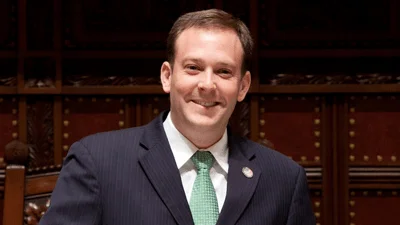The U.S. Department of the Treasury’s Office of Foreign Assets Control (OFAC) has announced sanctions against eight individuals and 12 companies in Mexico connected to the Sinaloa Cartel’s Los Chapitos faction. This network is accused of supplying precursor chemicals used in the production of illicit fentanyl, which is trafficked into the United States.
According to Under Secretary for Terrorism and Financial Intelligence John K. Hurley, “Over 500,000 Americans have died of fentanyl poisoning. President Trump has made clear that stopping the deadly flow of drugs into our country is a top national security priority. Under Secretary Bessent’s leadership, the Treasury Department is committed to dismantling the complex financial networks that support these terrorist organizations.”
The Los Chapitos faction, led by Archivaldo Ivan and Jesus Alfredo Guzman Salazar—sons of Joaquin ‘El Chapo’ Guzman Loera—controls significant territories in Mexico and plays a major role in trafficking fentanyl and methamphetamine. The U.S. Department of State designated the Sinaloa Cartel as a Foreign Terrorist Organization and as a Specially Designated Global Terrorist on February 20, 2025. OFAC also designated Los Chapitos under counterterrorism and counternarcotics authorities on June 9, 2025.
This enforcement action was supported by cooperation with several U.S. agencies, including the Federal Bureau of Investigation Phoenix Field Office (Tucson Resident Agency), Drug Enforcement Administration offices (“CHEMEX” Tampa District Office and Rocky Mountain Field Division), Homeland Security Investigations’ Newark Field Office, and Customs and Border Protection’s National Targeting Center.
Among those sanctioned is Sumilab, S.A. de C.V., a chemical company based in Culiacan, Sinaloa, Mexico. Sumilab was previously sanctioned by OFAC in May 2023 for its involvement in providing precursor chemicals to cartel members. The business is operated by members of the Favela Lopez family—Victor Andres Favela Lopez, Francisco Favela Lopez, Jorge Luis Favela Lopez, Maria Gabriela Favela Lopez—and their associates.
Following previous sanctions against Sumilab, members of the Favela Lopez family attempted to obscure their involvement by removing signage from storefronts and altering corporate records but continued their activities supplying chemicals for drug production. The chemicals are distributed both within Mexico and to companies in the United States where they are synthesized into illicit drugs sold domestically.
Other businesses linked to this network include Agrolaren, Viand, Favelab, Fagalab (Favela Pro), Qui Lab, Storelab, Macerlab (Importaciones y Nacional Marcerlab), all reportedly owned or controlled by various members of the Favela Lopez family or their associates such as Cesar Elias Lopez Araujo.
OFAC also sanctioned Martha Emilia Conde Uraga (“Martita”), described as a longtime chemical broker for the Sinaloa Cartel who operates warehouses around Culiacan using fraudulent invoicing practices to supply precursor chemicals for drug production by Los Chapitos affiliates. Companies tied to Conde Uraga include Viosma (Comercial Viosma del Noroeste), Prolimph Quimicos en General (Prolimph), Proveedora de Servicios de Salud Mental del Pacifico (Salud), and Roco del Pacifico Inmobiliaria (Roco).
As a result of these designations, any property or interests belonging to these individuals or entities within U.S. jurisdiction are blocked and must be reported to OFAC. Transactions involving these persons are generally prohibited unless authorized by OFAC or exempted by law.
Violations may result in civil or criminal penalties for both U.S. and foreign persons involved with designated parties or entities owned at least 50 percent by them.
“The power and integrity of OFAC sanctions derive not only from OFAC’s ability to designate and add persons to the Specially Designated Nationals and Blocked Persons List (SDN List), but also from its willingness to remove persons from the SDN List consistent with the law,” states official guidance included with today’s announcement.
Further information on seeking removal from an OFAC list can be found through official Treasury guidance on filing petitions.





